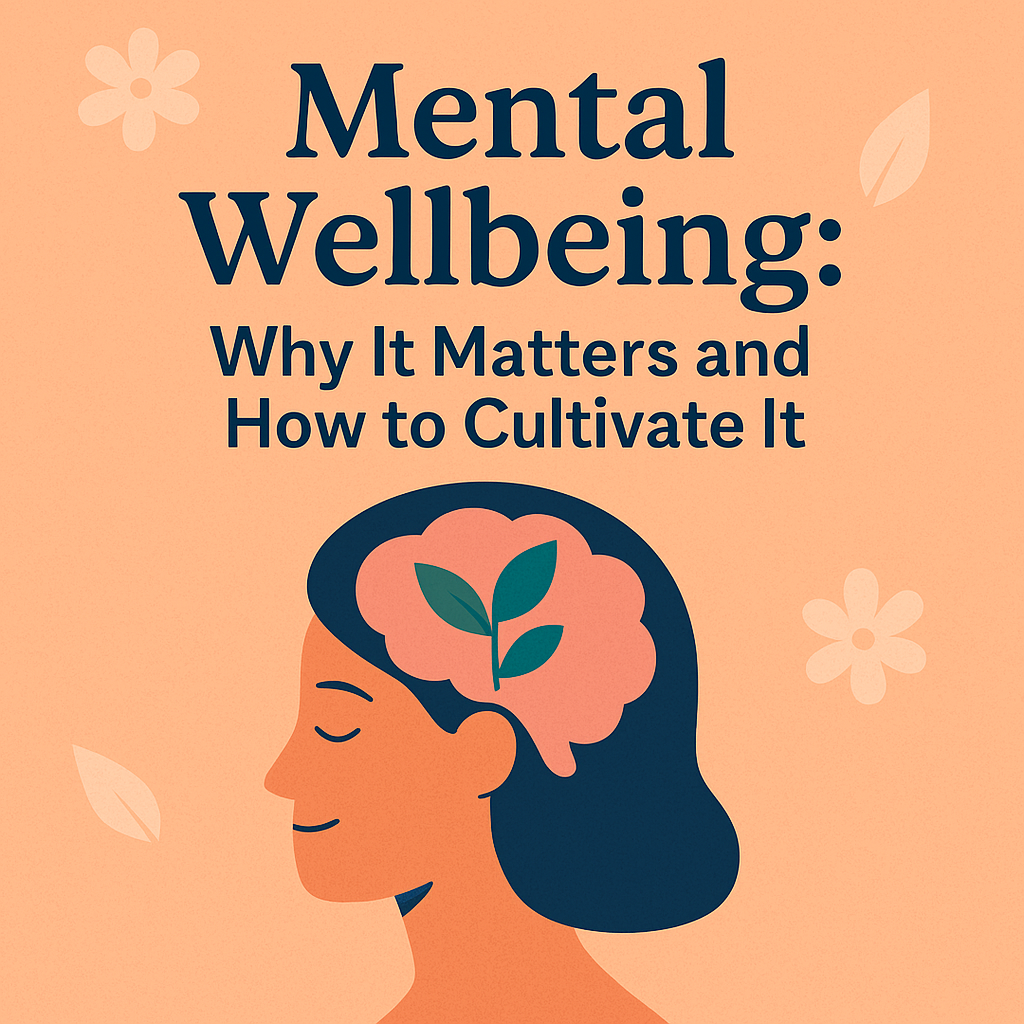Introduction:
In today’s fast-paced world, it’s easy to get caught up in the hustle and overlook one of the most vital aspects of our lives, Mental Wellbeing. While we often prioritize physical health, we rarely stop to consider the state of our minds. But just like the body, the mind needs daily care, rest, and nourishment.
Understanding the importance of mental wellbeing is the first step toward creating a more balanced, joyful life. This guide explores what mental wellbeing truly means, offers effective mental health strategies, and shows you how to improve mental wellbeing through simple, sustainable practices that fit into your everyday routine.
Meet Mental Fitness Advocate – dailytelegraph
Understanding Mental Wellbeing
Mental wellbeing is more than the absence of mental illness. It refers to a state of emotional balance, inner strength, and the ability to manage stress, build relationships, and live with purpose. It impacts how we think, feel, and behave—and how we respond to life’s highs and lows.
When your mental wellness is strong, you’re better equipped to:
- Cope with challenges and setbacks
- Build meaningful connections
- Stay focused and productive
- Enjoy life with clarity and purpose
Recognizing the importance of mental wellbeing is essential for leading a fulfilling and resilient life.
Key Elements of Mental Wellbeing
1. Self-Awareness
Being aware of your thoughts and emotions helps you respond—rather than react—to life’s challenges. Self-awareness lays the foundation for healthy decision-making and emotional growth.
🟢 Mental health tip: Try journaling or mindfulness to reflect on your emotions and recognize patterns in your behavior.
2. Healthy Relationships
Strong social connections are critical to emotional wellbeing. Whether it’s family, friends, or colleagues, surrounding yourself with positive influences supports mental strength and reduces stress.
🟢 Try this: Make time for genuine conversations, offer support to someone else, or reconnect with an old friend.
3. Stress Management
Stress is unavoidable—but manageable. Learning to cope with it is one of the most practical mental health strategies you can adopt.
🟢 Try this: Practice deep breathing, meditation, or simply take a walk. Set healthy boundaries and give yourself permission to rest.
4. Physical Health Habits
The link between mind and body is powerful. Sleep, movement, and nutrition all play an essential role in mental wellness.
🟢 Try this: Sleep 7–9 hours nightly, eat balanced meals, and aim for daily physical activity—even a short walk counts.
5. Purpose and Personal Growth
Feeling purposeful adds direction and joy to life. When you engage in meaningful activities, you strengthen your mental wellbeing.
🟢 Try this: Set a small goal, volunteer, or learn a new skill. Progress, no matter how small, fuels motivation.
Daily Habits for Mental Wellness
If you’re wondering how to improve mental wellbeing, start with your daily routine. Small, consistent actions can make a big difference:
- Gratitude journaling – Focus on what’s going right instead of what’s wrong.
- Digital detox – Reduce screen time and disconnect to reconnect with yourself.
- Nature time – Spend at least 10 minutes outside each day to reset your mind.
- Acts of kindness – Helping others boosts your own happiness and sense of connection.
- Breathing or meditation – Ground yourself with calming practices that reduce anxiety and improve clarity.
These daily habits for mental wellness are simple yet effective ways to boost mental wellbeing.
Mental Wellbeing Across Life Stages
Your mental health needs change as you grow—and your strategies should too.
• Children and Teens:
Need emotional support, routines, and open communication to develop self-esteem and resilience.
• Adults in the Workforce:
Often face burnout and time pressure. Time management, self-care, and support networks are crucial.
• Older Adults:
May experience loneliness or loss. Staying socially engaged, physically active, and mentally stimulated can enhance mental wellness.
🟢 Adapt your self-care to your current life stage. What works in your twenties might not serve you in your fifties—and that’s okay.
When to Seek Professional Support
Even with the best mental health tips, there may come a time when you need professional support—and that’s perfectly normal.
Signs you may need help:
- Persistent sadness or anxiety
- Difficulty sleeping or eating
- Loss of interest in things you once enjoyed
- Feelings of hopelessness or thoughts of self-harm
🟢 Mental health tip: Therapy, counseling, or support groups can offer tools and guidance when life feels overwhelming. Help is available—and seeking it is a sign of courage, not weakness.
Conclusion
Your mental wellbeing is one of your most valuable assets. It affects your relationships, choices, energy, and overall quality of life. The good news? You don’t need to make dramatic changes to see improvement. Start small. Be kind to yourself. And take one mindful step at a time.
Whether it’s practicing gratitude, getting better sleep, or talking to a professional, every positive action adds up. With consistency and care, you can boost mental wellbeing and build a healthier, more resilient mind.
You deserve to feel balanced, strong, and well—mentally and emotionally. Make your mind a priority.

